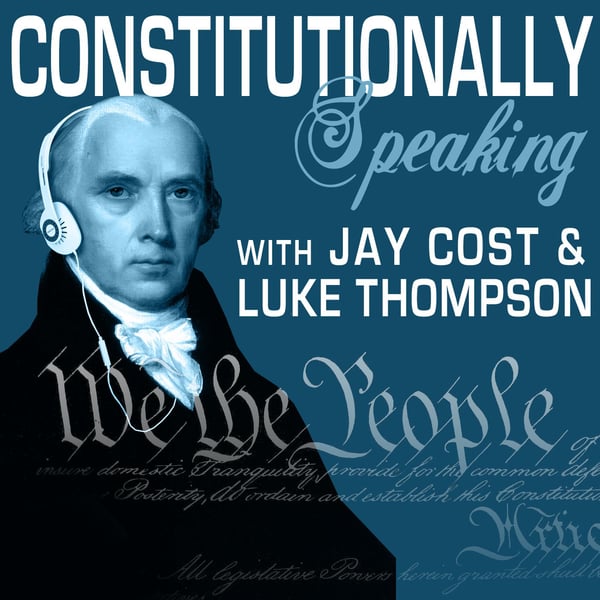Episode 71: Congress’s Post-Watergate Period
Constitutionally Speaking
National Review
4.9 • 652 Ratings
🗓️ 9 September 2021
⏱️ 76 minutes
🧾️ Download transcript
Summary
Transcript
Click on a timestamp to play from that location
| 0:00.0 | Welcome to constitutionally speaking, a podcast about the United States Constitution, |
| 0:13.5 | Early American History and Political Philosophy. My name is Jay Cost, and with me, as always, |
| 0:19.1 | is my fantastic co-host, Luke Thompson. |
| 0:22.0 | And this week, we are going to continue our discussion of the historical Congress. |
| 0:26.5 | Just to give you a sense of our direction here, Luke and I have been spending the last couple of |
| 0:30.4 | weeks talking about the change of Congress as an institution through time. |
| 0:35.4 | We've almost come to the conclusion of this part of our series on Congress. |
| 0:39.4 | And then after that, we're going to begin looking at individual aspects of contemporary congressional |
| 0:44.2 | institutions like the committee system, the party system. We're going to look at House procedure, |
| 0:50.0 | Senate procedure, how differences between the two chambers are resolved in legislation, |
| 0:56.1 | congressional oversight, things like that. We thought it was important before we get to the |
| 1:00.9 | mechanics of the contemporary Congress, though, to sort of give you a flavor for how Congress |
| 1:05.4 | has evolved. And that's been this subject of the last couple episodes. And today we are looking at Congress in the wake of |
| 1:14.0 | the Watergate scandal. And look at some really insightful points last week about how in the wake |
| 1:22.0 | of Watergate, which really begin, Watergate in many respects, is a capstone to really, I would say, eight, nine years of |
| 1:31.1 | very almost supercilious presidential governance, where the president has been, you know, not just |
| 1:40.6 | the center of American political life, but the president has been lying to the American |
| 1:46.4 | people and lying to Congress. And, you know, Nixon obviously is the one who falls because of that. |
| 1:55.3 | But the fact of the matter is that the Johnson administration had been lying to Congress for quite some |
| 2:02.4 | time about the nature of America's involvement in Vietnam. It was the phrase that was coined |
| 2:09.4 | during the Johnson administration was the credibility gap. And so finally, you see, you know, |
| 2:16.7 | and it's not just Johnson and Nixon, it's also Spiro Agnew as well, and there's just this sense of the executive branch has gotten in over its head or maybe just enough is enough, I would say. |
... |
Please login to see the full transcript.
Disclaimer: The podcast and artwork embedded on this page are from National Review, and are the property of its owner and not affiliated with or endorsed by Tapesearch.
Generated transcripts are the property of National Review and are distributed freely under the Fair Use doctrine. Transcripts generated by Tapesearch are not guaranteed to be accurate.
Copyright © Tapesearch 2025.

